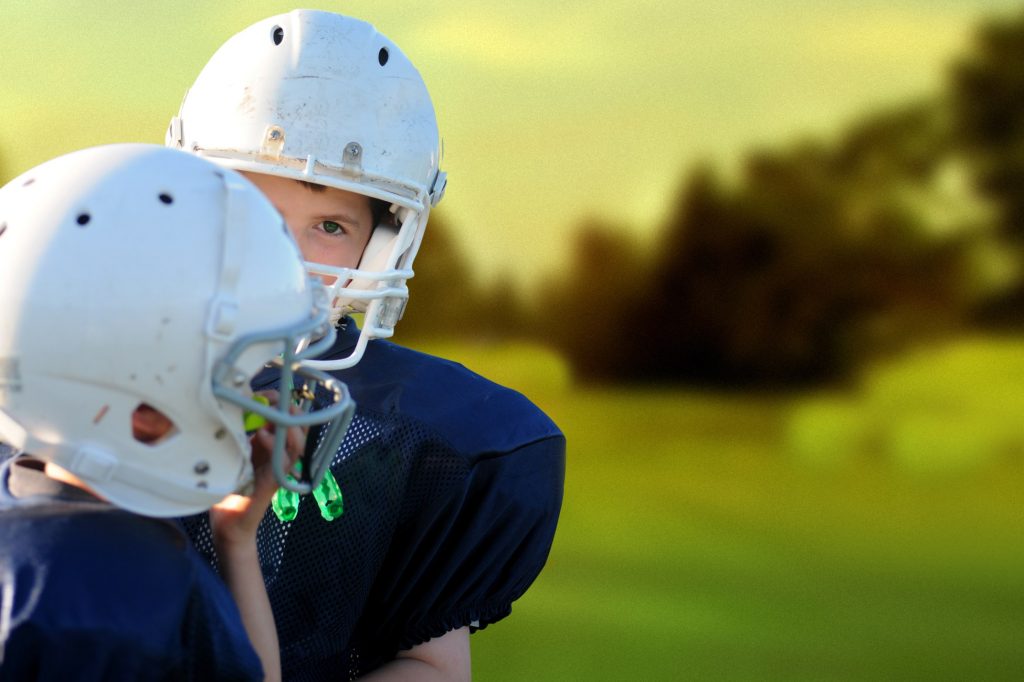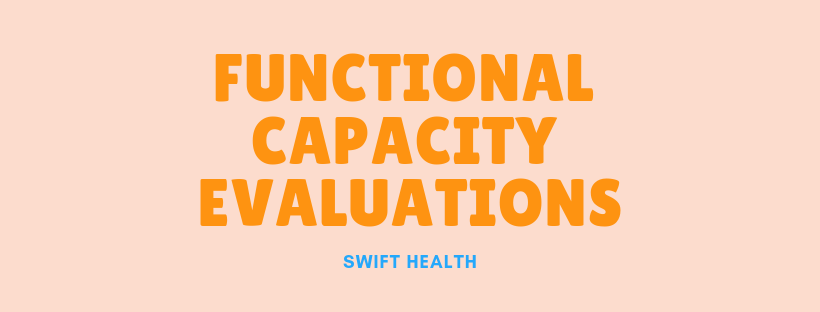Concussion: 4 Kinds of therapists that can help with your concussion recovery now

The goal of this article is to explain how various therapists and therapies can help you on your recovery after a concussion. We will explain what a concussion is, the myths about concussions, and the types of therapists that can lead you to independence, recovery and more.
Concussions are serious head injuries
The word concussion is loosely thrown around to describe a “less serious” head injury which is far from the truth! Any type of head injury—minor or large—should be taken seriously.
There are several studies that show that many individuals mistakingly undermine the severity of a brain injury when the term “concussion” is used.
For example, researchers at McMaster found that despite serious brain injuries, children spent fewer days at the hospital when they were described as having a concussion and were more likely to return to school sooner following hospital discharge (1).
Given these misconceptions, it is important that the general public is given accurate and helpful resources on concussion prevention and safety.
Concussion FAQs
Common signs and symptoms after a concussion?
It is important to keep in mind that signs and symptoms of a concussion can be subtle and may not show up immediately—that doesn’t mean one shouldn’t attend to them. Some of the signs and symptoms of a concussion can be divided into the following (3, 4):
Physical
Symptoms
- headaches that don’t go away with painkillers
- nausea and/or vomiting
- fatigue
- drowsiness
- blurry vision
- temporary loss of consciousness
- dazed appearance
- ringing in the ears
- sleep disturbances
Emotional & Behavioural Symptoms
- irritability
- anxiety
- sadness
- depression
- anger
Cognitive Symptoms
- concentration and memory complaints
- delayed response to questions
- brain fog
- amnesia surrounding the event
- sensitivity to light and noise, communication impairments.
It is important to visit a clinic or go to the hospital if your symptoms worsen. Concussions can result in serious long-term complications if left untreated.
Prevalence of concussion in Canadian population?
The current data on concussion incidence is most likely an underestimate as most statistics reflect visits to clinics, hospitals, and/or emergency departments(5). There are many individuals that choose not to visit their healthcare provider after a head-related injury or may see a different healthcare provider. With that being said, the current estimate of concussions is 200,000 amongst Canadians. It is important to remember that concussion related accidents occur outside of sports-related injuries and motor-vehicle accidents. Falls, especially in children and the elderly, are additional common causes of concussions which can easily be prevented with proper client education and environmental modifications.
3 Misconceptions About Concussions
Concussion has become a major buzzword in the media which has played an important role in spreading awareness about the negative implications of head-related injuries. At the same time, there are many myths surrounding the condition and what treatment should look like.
In this article we will debunk three common myths surrounding concussion!
Who can help with my concussion recovery?
Trying to figure out who or where to receive help from after experiencing a head-injury can be extremely overwhelming! It is important to seek immediate medical attention from a doctor if you are experiencing any of the symptoms listed above. Once you have been evaluated by a physician, you may be referred or choose to see a different healthcare provider to help manage your post-concussion symptoms. Here are some examples of those professionals!
Occupational Therapists
You may decide to see an occupational therapist if your concussion has gotten in the way of your ability to participate in the day-to-day activities that are important to you. Many of the physical, emotional, and cognitive symptoms discussed above can get in the way of engaging in activities related to leisure (social activities, hobbies), productivity (e.g. work, school), or self-care (e.g. grooming, cooking, sleep hygiene) (8).
Occupational therapists work closely with clients to create personalized treatment plans that will empower them to return to their daily activities after a concussion.
Occupational therapists can also provide education on energy conservation techniques, sleep hygiene, and relaxation strategies to help manage symptoms.
Speech Therapists
Speech Therapists have the specialized knowledge to address communication related impairments that occur after a concussion. Depending on the extent of your injury, communication impairments can include symptoms like slower thinking, problems learning new information, impaired language and reading comprehension, and reduced ability to follow and engage in conversations (9).
A speech therapist can help you to regain communication skills lost after a concussion by conducting formal assessments on your speech and language skills to target individual deficits.
Counsellors
Counsellors also play an important role in addressing the less obvious mental health consequences following a concussion. For some individuals, the psychological and emotional effects of a concussion including depression, anxiety, irritability, and mood swings can be present a year after their injury (10).
Counsellors are mental health professionals that can help clients overcome many of the grievances and lifestyle changes experienced after a concussion.
Kinesiologists
Finally, kinesiologists are professionals focused on using physical activity as a method of treatment to improve performance and function. This is especially relevant in concussion treatment where personalized exercise programs are important to promote physical activity early on in recovery.
Resting is important, but completely avoiding all forms of physical activity can have negative implications on recovery as well. Your kinesiologist can work closely with you to ensure you are getting enough physical activity without compromising your body’s physical limits.
Why choose Swift Health therapists for your concussion recovery?
All Swift Health therapists are regulated health professionals with post-professional training on concussion management. All therapists (OTs, SLPs, Counsellors, and Kinesiologists) are registered with their respective regulatory body to ensure they meet the necessary education qualifications to provide safe and ethical care. Our therapists at Swift Health use a multidisciplinary team-based approach to concussion management whereby Occupational Therapists, Speech Therapists, Kinesiologists, and Councillors work together to achieve the same goal of supporting our client’s individual needs.
Contact Us
References
- [1] https://www.sciencedaily.com/releases/2010/01/100118001721.htm
- [2] https://www.cdc.gov/headsup/basics/concussion_whatis.HTML
- [3] https://www.mayoclinic.org/diseases-conditions/concussion/symptoms-causes/syc-20355594
- [4] https://www.fraserhealth.ca/health-topics-a-to-z/brain-injury/concussion/common-symptoms-and-problems-after-a-concussion#.YKVvAC2s–o
- [5] https://www.braininjurycanada.ca/en/statistics-brain-injury
- [6] https://www.concussion.org/concussion-resources/
- [7] https://www.ncbi.nlm.nih.gov/pmc/articles/PMC6089233/
- [8] https://www.caot.ca/document/4049/Concussion%20-%20Fact%20Sheet.pdf
- [9] https://cdn.ymaws.com/www.osla.on.ca/resource/resmgr/other_advocacy_content/concussion_and_slp.pdf
- [10] https://counseling.northwestern.edu/blog/counseling-help-after-concussion
2 Reasons Home Modification Assessments Are A Growing Demand
Concussion: 4 Kinds of therapists that can help with your concussion recovery now
The goal of this article is to explain how various therapists and therapies can help…
Navigating Chronic Pain with an Occupational Therapist
Online Holiday Party 2020 – A Community Healthcare Team’s Version
Occupational Therapy in Mental Health Settings
You could seek out occupational therapy (OT) services for a wide variety of symptoms, such…





